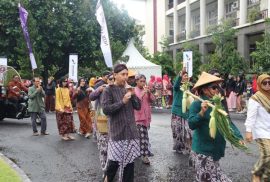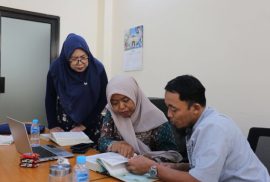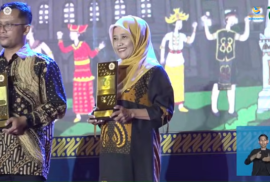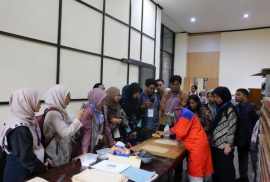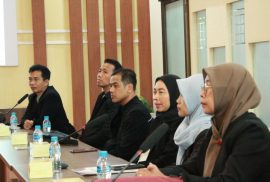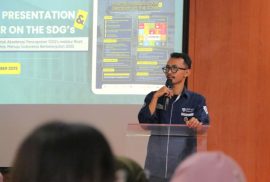Under a light drizzle that failed to dampen spirits, the Library and Archives of Universitas Gadjah Mada (UGM) participated in enlivening the Nitilaku 2025 Cultural Parade, themed “Ruwat Rawat Kebangsaan,” on Sunday, 14 December 2025. Carrying the message “Planting Knowledge, Harvesting Civilization,” the UGM Library and Archives delivered a strong statement on literacy, sustainability, and respect for the nation’s cultural roots.
Sustainable Development Goals
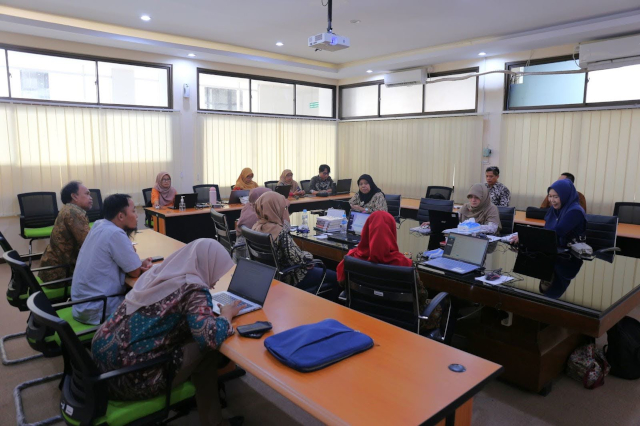 Amid the rapid wave of digitalization, the UGM Library and Archives reaffirmed its commitment to maintaining high-quality services by organizing a knowledge-sharing session titled “Conventional Information Retrieval Training for Librarians and Library Staff” on Thursday (11/12/2025) at the Meeting Room, L6 Building, 2nd Floor. The program served as an important momentum to strengthen the fundamental skills of librarians and library staff in managing and retrieving print-based information sources, competencies that remain relevant despite the dominance of digital access.
Amid the rapid wave of digitalization, the UGM Library and Archives reaffirmed its commitment to maintaining high-quality services by organizing a knowledge-sharing session titled “Conventional Information Retrieval Training for Librarians and Library Staff” on Thursday (11/12/2025) at the Meeting Room, L6 Building, 2nd Floor. The program served as an important momentum to strengthen the fundamental skills of librarians and library staff in managing and retrieving print-based information sources, competencies that remain relevant despite the dominance of digital access.
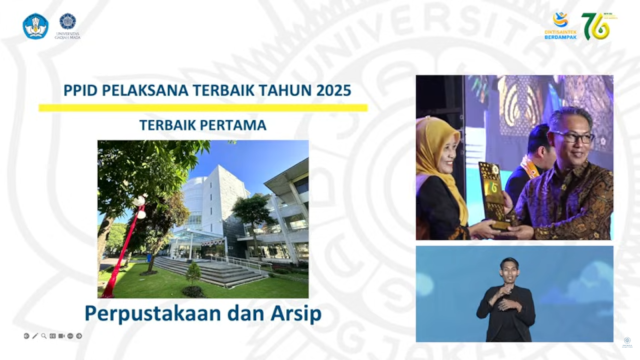 The UGM Library and Archives has been named First Place Outstanding Work Unit in the 2025 UGM Public Information Services Evaluation and Monitoring category, marking the unit’s continued consistency in providing accurate, transparent, and accessible public information services.
The UGM Library and Archives has been named First Place Outstanding Work Unit in the 2025 UGM Public Information Services Evaluation and Monitoring category, marking the unit’s continued consistency in providing accurate, transparent, and accessible public information services.
The international accreditation body ACQUIN (The Accreditation, Certification and Quality Assurance Institute) conducted a visitation to the Library and Archives of Universitas Gadjah Mada (UGM) on Tuesday, 9 December 2025. The visit was part of the accreditation assessment for 19 study programs from the Faculty of Cultural Sciences, the Faculty of Social and Political Sciences, and the Graduate School. This agenda positioned the library as one of the key facilities that reflects the academic quality of the university.
The women’s volleyball team of the UGM Library and Archives delivered an energetic and cohesive performance in the Invitational Volleyball Tournament held among faculties and work units as part of the 76th Universitas Gadjah Mada Anniversary celebration. The match, held at the UGM Faculty of Pharmacy Sports Hall on Monday, 8 December 2025, became an opportunity for the team to demonstrate strong coordination while strengthening cross-unit interaction on campus.
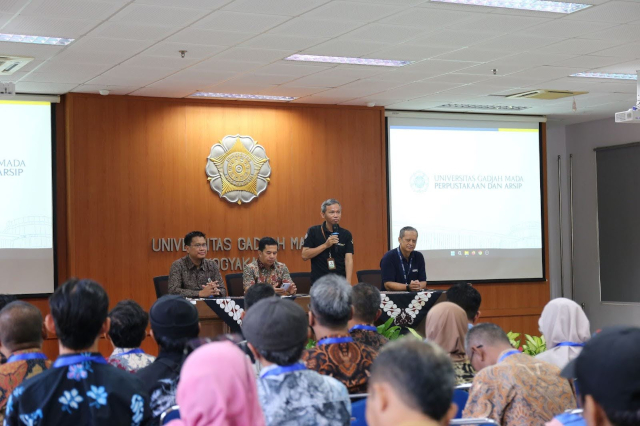
Efforts to enhance the capacity of library and archival managers were once again bolstered by PPSDM Kemendikdasmen through a good practice visitation to the UGM Library and Archives on Friday, 5 December 2025. From early morning, six participant classes, consisting of four archival classes and two library classes, filled the Seminar Room, L1 Building, 2nd Floor, to take part in a series of field-learning activities that form part of the Basic-Level Technical Training on Library and Archival Management.
The UGM Library and Archives held a talkshow titled “Addressing Energy Challenges: Building Renewable Energy Businesses (EBT) Without Capital from Campus” on Wednesday, 27 November 2025, at the Seminar Room. The event served as a platform for students and the public to discuss clean energy innovations and future business opportunities in the renewable energy sector.
The Library and Archives of Universitas Gadjah Mada (UGM) received a benchmarking visit from the Graduate School of UIN Kiai Ageng Muhammad Besari Ponorogo on Friday, 21 November 2025, to discuss the management of theses and dissertations as well as various strategies to increase library visits as part of efforts to strengthen SDG 4: Quality Education and SDG 11: Sustainable Cities and Communities.
The spirit of strengthening academic contributions to sustainable development was strongly reflected in the Poster Presentation & Seminar on the SDGs 2025 and the Grand Award Researcher Award LPDP UGM 2025, organized by LPDP UGM on Tuesday, 18 November 2025, at the Seminar Room of the Library and Archives of Universitas Gadjah Mada (UGM). From morning until late afternoon, the event brought together students in a forum that ignited discussions on research, innovation, and scientific contributions to accelerate SDGs progress toward a Sustainable Indonesia 2030.
Six students from the Indonesian Language and Literature Education Program (PBSI) at Sanata Dharma University (USD) conducted a collection management observation at the Library and Archives of Universitas Gadjah Mada (UGM) on Friday, 14 November 2025. The activity was part of the coursework for the Library Management class.

